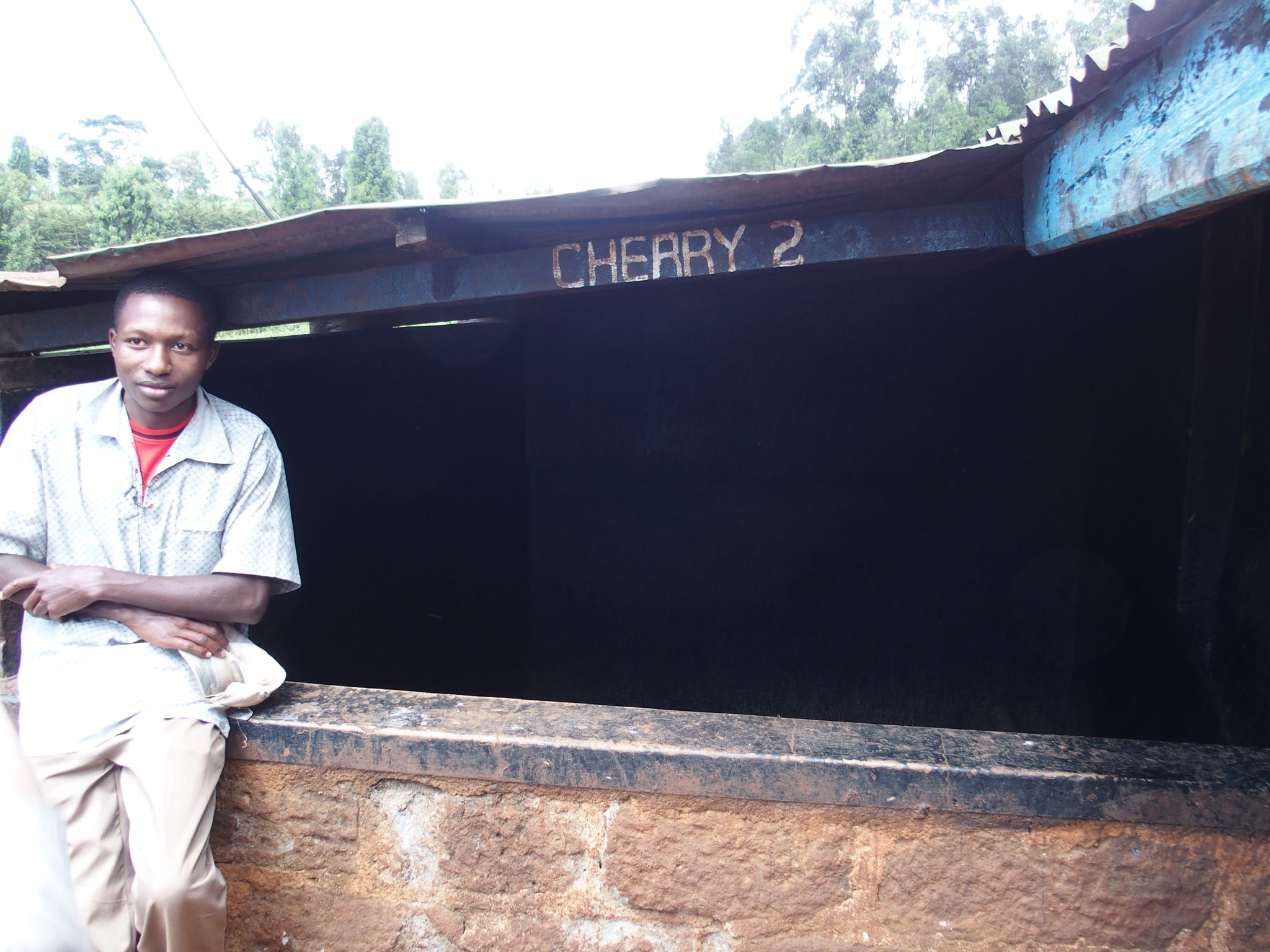
AA BARIKONGO / KENYA
AA Barikongo / Kenya
Flavor Profile :
Red Currant, Barbados cherry, Juicy, Assam tea.
Origin: Kenya
Factory: Barikongo Factory
Cooperative: Komothai cooperative society
Refgion:Kiambu
Varieties: SL28, SL34, Ruiru 11, and Batian
Process: Washed
Altitude: 1800m
Harvest: 2023-2024
In late February, we once again visited our suppliers in Kenya to directly source coffee. This visit took place immediately after changes were made to the coffee distribution rules within Kenya. While supply chain stakeholders were facing new challenges, they seemed to be positively adapting to the new rules. Thanks to the support of the local people, we were able to focus on selecting high-quality coffee.
Late February is the peak of the buying season in Kenya, with the main crop harvest and processing already completed. Roasters and importers from around the world were visiting to purchase coffee. Although the number of samples was slightly lower compared to last year, we were still able to taste over 100 different coffees.
Among them, the coffee from Barikongo factory, which we are handling for the first time, was particularly impressive. From the moment we tasted it during cupping, its vibrant flavor left a strong impression. Characterized by intense fruitiness and solid sweetness, it has a juicy red fruit flavor reminiscent of currants or acerola, with a tea-like aroma spreading in the mouth. It's a vivid, quintessentially Kenyan coffee.

This factory operates under the umbrella of Komosei FCS, which is active in the Kiambu region just north of Kenya's capital, Nairobi. Komosei FCS oversees 13 factories, and cooperative members are free to choose which factory to deliver their coffee to. This FCS aims to empower the new generation, with most factory managers reportedly being young people between 25 and 35 years old.

Coffee cherries are carefully hand-picked and delivered directly to the wet mill or collection points. There, they are transferred to sorting mats or tables where unripe or damaged cherries are removed. After that, only the ripe cherries are weighed and processed.
The processing begins by placing the coffee cherries in water tanks to remove any unripe cherries that float. Next, a disc pulper is used to remove the fruit flesh, leaving the coffee beans protected by their parchment. After pulping, the beans are sorted by weight using water, separating high-quality, dense beans from lighter, lower-quality ones.
The beans then undergo dry fermentation overnight to break down and wash away the sugary substance (mucilage) adhering to the parchment surface. Further sorting is done using water channels (heavier beans that sink to the bottom of the channel are considered higher quality and sweeter). Finally, the beans are soaked in clean water for 24 hours. This process is said to enhance the beans' proteins and amino acids, resulting in increased complexity of acidity and improved cup clarity.

After soaking, the coffee is spread out on raised drying beds (also known as African beds) and is constantly stirred to ensure even drying. During this process, any defective beans are identified and removed. The time spent on the drying beds varies depending on the climate, ambient temperature, and the volume being processed. It can take 1-3 weeks to reach the target moisture content of 11-12%.

AA Barikongo is our first release from Kenya this year. Please look forward to more releases coming up as we approach summer.



